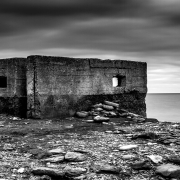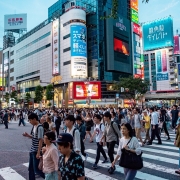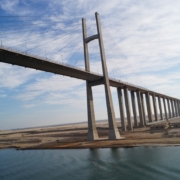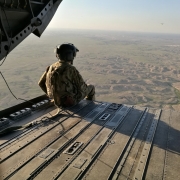How was Singapore’s Foreign Policy during the Cold War?
Topic of Study [For H1 History Students]:
Section B: Essay Writing
Theme II: Cold War in Asia [1945-1991] – Singapore’s Foreign Policy during the Cold War (1945-1991)
Foreign Policy and Singapore
By definition, ‘foreign policy’ is known as a government’s approach in dealing with other countries. Foreign policies are implemented by governments in response to various challenges at the bilateral or international level. In 2017, there was a controversial debate over how Singapore, as a small state, should conduct its foreign policy.
In this article, we will be examining how Singapore’s foreign policy was influenced by two major considerations: Survival and Realism
1. Perceived vulnerability: The concept of Survival
From the outset, when Singapore achieved independence in 1965, its political leaders held a firm belief that ‘survival’ was of paramount importance to the development of this new nation.
Given the lack of natural resources and its small geographical size, Singapore had to promote economic cooperation with other countries, including its neighbours, to advance its economy. The government capitalised on the strategic location of Singapore to facilitate international trade. Additionally, the heavy emphasis on state-guided industrialisation contributed to the entry of multi-national corporations (MNCs) that aided in job creation for the locals. Therefore, economic progress became one of the fundamental aims to ensure the survival of the Republic.
From the security viewpoint, there were external threats that endangered Singapore’s survival. As such, Singapore forged firm diplomatic ties with its neighbouring countries as well as Great Powers.
On 8 August 1967, Singapore was one of the founding members that signed the Bangkok Declaration, which formalised the establishment of the Association of Southeast Asian Nations (ASEAN). With this regional organisation, inter-state cooperation was encouraged, thereby strengthening diplomatic ties between Singapore and other member nations. Given that there were inter-state tensions in the region, such as the Konfrontasi, that strained political ties, the ASEAN Way was a critical mechanism to alleviate tensions and maintain amicable relations.
More importantly, the Cold War had spread to Southeast Asia by the 1960s, as seen by the outbreak of the Second and Third Indochina Wars. In anticipation of these ideological challenges, Singapore established diplomatic ties with Great Powers, such as USA, to prevent communist expansion that might create political instability.
However, Singapore did not publicly declare its diplomatic position towards USA due to contrasting perceptions held by other ASEAN members relating to the reliance of Great Power support until the late 1980s.
2. The concept of Realism
The second principle that shaped Singapore’s foreign policy involved ‘Realism’, which explains that states are driven by their pursuit of national interests. The assumption is based on the notion that the international order is chaotic and conflicts are highly likely. In this case, survival is one of the many national interests pursued by Singapore.
In addition, the preservation of Singapore’s sovereignty was prioritised throughout the Cold War. One notable event was the Third Indochina War, in which the foreign occupation of Cambodia was perceived by Singapore as an outright violation of the international law. As such, its foreign policy led to the frequent lobbying at the United Nations to galvanise member nations into action, particularly the International Conference on Kampuchea (ICK) of July 1981.
What’s Next?
In the next article, we will analyse Singapore’s foreign policy responses to the Second and Third Indochina Wars to understand its effectiveness.
What can we learn from this article?
Consider the following question:
– How far do you agree that Singapore’s foreign policy during the Cold War was largely shaped by realism? [to be discussed in class]
Now that you have covered the contributing factors that influenced the foreign policy of Singapore during the Cold War, it is imperative that you attempt H1 History essay questions to assess your knowledge application skills. On a separate but related note, you can consider registering for our JC History Tuition. You will receive organised summary notes, undergo enriching skills-based writing workshops and engage in thought-provoking topical discussions.
The H2 and H1 History Tuition feature online discussion and writing practices to enhance your knowledge application skills. Get useful study notes and clarify your doubts on the subject with the tutor. You can also follow our Telegram Channel to get useful updates.
We have other JC tuition classes, such as JC Math Tuition and JC Chemistry Tuition. For Secondary Tuition, we provide Secondary English Tuition, Secondary Math tuition, Secondary Chemistry Tuition, Social Studies Tuition, Geography, History Tuition and Secondary Economics Tuition. For Primary Tuition, we have Primary English, Math and Science Tuition. Call 9658 5789 to find out more.











